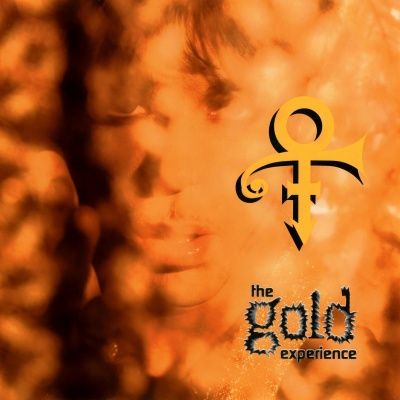
The Gold Experience
1993年,Prince将其名字改成了一个无法发音的符号,但直到1995年他才真正发表了一张属于这个符号的唱片。在这两年里,他发表了一张精选集、一张《Black Album》以及最后一张以“Prince”这个名字发表的《Come》。整个1994年,他都在迫使华纳公司发表另外一张专辑《The Gold Experience》,但公司拒绝,他在媒体上公开宣称自己是个奴隶。在1995年夏季前,他和唱片公司达成赔偿协议,唱片最终在秋季发行。 在某种程度上,《The Gold Experience》做到了大肆宣传。与其说这张唱片是创造性的重生,还不如说是在方向上有所改变,可以发现Prince和New Power Generation(NPG)穿插在典型的令人眼花缭乱的音乐风格组合中,从常见的形式中巧妙地扭曲出了新的声音。像《The Love Symbol Album》一样,这张专辑遵循松散的理念,混合了Pop、Funk、Rock、Soul、Jazz等多种风格形成了一个模糊的故事情节。 《The Gold Experience》一首接一首,一点点地加强,Prince的声调也更直接,尤其是费城精神礼赞“The Most Beautiful Girl in the World”和纯Pop“Dolphin”。乐队的演出真实自信,带来了funk试验品(“P-Control”),fuzzed-out摇滚乐曲(“Endorphinmachine”),还有像“I Hate U”这样的民歌。《The Gold Experience》因为尝试加深故事的间奏而稍微有点沉重,但也使音乐不致中断,这些都不影响该专辑成为Prince自《Sign O' the Times》之后最满意的作品。 Prince changed his name to an unpronounceable symbol in 1993, but it wasn't until 1995 that he actually released a record credited to that symbol. During those two years, he released a greatest-hits collection, an official version of his much-bootlegged Black Album, and a final Prince album, the lackluster Come. Throughout 1994, he pressured Warner to release another album, The Gold Experience, but the company refused and he staged a public protest in the media, calling himself a slave to the label. By the summer of 1995, the artist and the company had made amends and the record was released in the fall. In a way, The Gold Experience lives up to the manufactured hype created while it languished on the shelf. More of a creative rebirth than a change in direction, the record finds Prince and the New Power Generation running through a typically dazzling array of musical styles, subtly twisting new sounds out of familiar forms. Much like The Love Symbol Album, it follows a loose concept, interweaving a variety of pop, funk, rock, soul, and jazz styles into a vague story. Song for song, The Gold Experience is slightly stronger than its predecessor, as Prince's melodies are more immediate, especially on the Philly soul tribute "The Most Beautiful Girl in the World" and the pure pop of "Dolphin." Also, the band's performance is lively and confident, bringing an effortless virtuosity to funk workouts ("P Control"), and fuzzed-out rockers ("Endorphinmachine"), as well as ballads like "Eye Hate U." The Gold Experience is somewhat weighed down by interludes that attempt to further the story but wind up interrupting the flow of the music, yet that doesn't stop the album from being Prince's most satisfying effort since Sign O' the Times.

